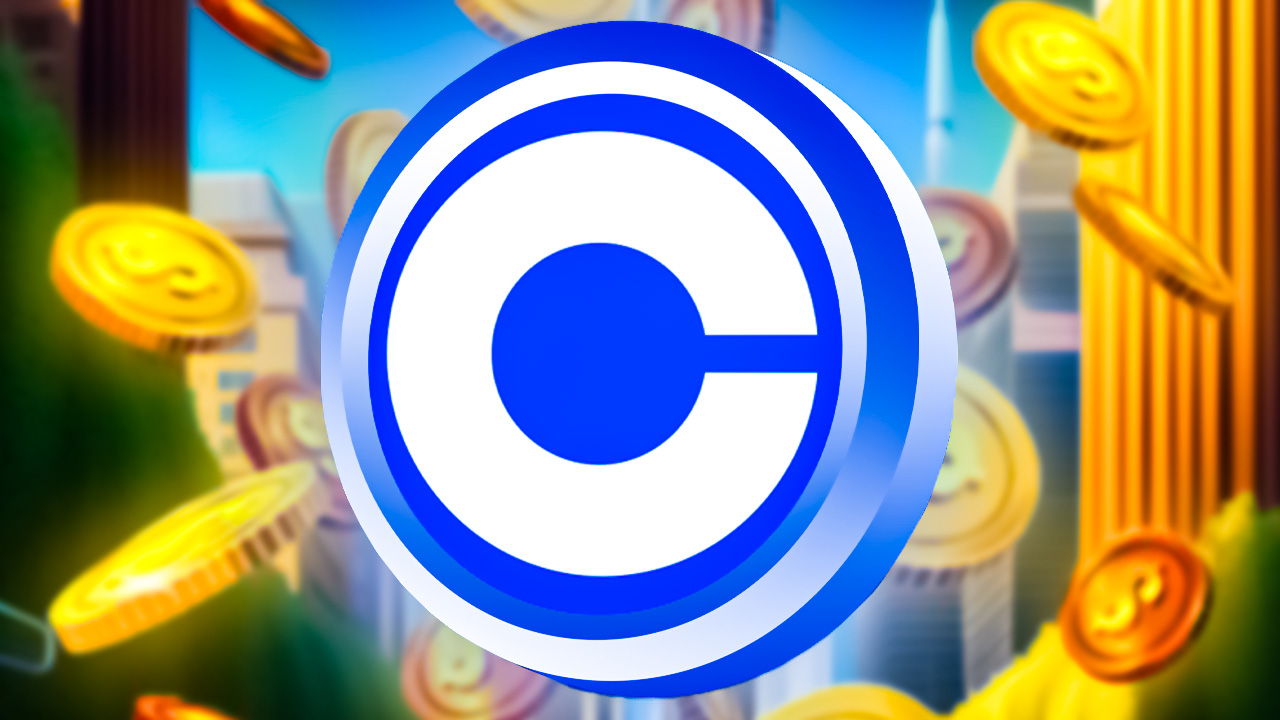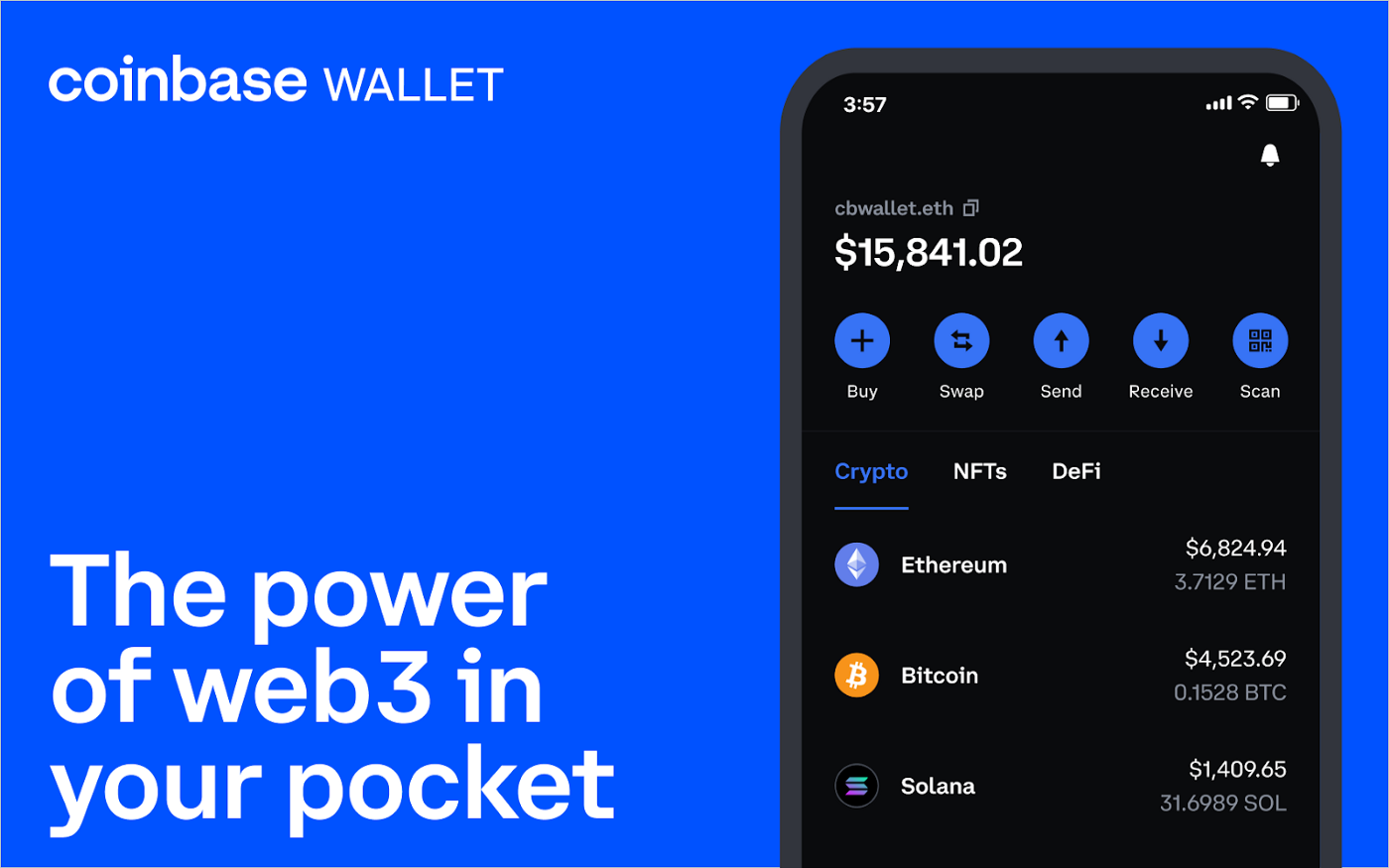Coinbase: Shaping the Future of Web3 and the Internet
 Noor
Noor
Introduction:
Coinbase has come a long way since its founding in 2012. Initially created as a user-friendly platform to buy and sell Bitcoin, it has since evolved into a major player in the cryptocurrency world and is now deeply involved in the broader Web3 movement. But what does all this mean? Whether you're a tech-savvy individual or just starting to explore digital assets, this article aims to break down what Coinbase is, how it works, and why it is crucial for the future of the internet.
What is Coinbase?
Coinbase started with a simple mission: to create an open financial system for the world. It allowed anyone with an internet connection to buy and sell Bitcoin easily.
Over time, the platform has grown to support more than 150 cryptocurrencies, offering services beyond simple trading, such as safekeeping, staking, and guidance materials for both beginners and experts.

How It Works:
At its core, Coinbase is a platform that allows you to buy, sell, and hold digital assets. Here’s a simple breakdown:
Buying and Selling Cryptocurrencies: Coinbase makes it easy to trade cryptocurrencies. Whether you want to buy a small amount of Bitcoin or sell a more obscure digital asset, Coinbase provides a user-friendly interface that caters to both newbies and experienced traders.
Coinbase Wallet: Beyond trading, Coinbase offers a self-custody wallet. This tool lets you control your private keys (the password to your digital assets) and interact directly with decentralized applications (dApps). Think of it like a bank that you have complete control over, without the need for a third party.
Staking: With the rise of proof-of-stake networks like Ethereum 2.0, Coinbase allows users to "stake" their cryptocurrency, meaning you can earn rewards simply by holding certain assets in your account.
For more in-depth details on Coinbase's functionalities, check out this guide.
Coinbase's Role in Web3:
Web3 is the next major evolution of the internet, emphasizing decentralization, privacy, and user control. Coinbase plays a crucial role in this transition by providing the infrastructure needed for people to participate in this new digital economy. Here’s how:
Decentralized Finance (DeFi): Coinbase serves as a gateway to DeFi, allowing users to lend, borrow, and trade assets without relying on traditional banks. This represents a significant shift from the way financial systems have operated for decades.
Non-Fungible Tokens (NFTs): NFTs are unique digital assets representing ownership of a specific item, like art or music. Coinbase is making it easier for creators and collectors to buy, sell, and store NFTs, thus enabling a new kind of digital economy.
For more about how Coinbase is influencing the Web3 space, you can explore this blog post.
Recent Innovations: Smart Wallets, $PEPU, and Beyond
Coinbase has recently rolled out several innovative features that could significantly impact the market:
Smart Wallets: Coinbase's smart wallets represent a step forward in user experience and security. These wallets incorporate smart contract functionalities, allowing users to automate transactions and interact seamlessly with various dApps. For example, you could set up recurring payments or trigger specific actions based on certain conditions, all within a secure, decentralized framework. This innovation could be a game-changer, bridging the gap between complex blockchain operations and everyday financial tasks.

Coinbase Wallet Web App: The Coinbase Wallet Web App is a browser-based version of the Coinbase Wallet, providing users with seamless access to their decentralized assets from any device. This web app offers the same features as the mobile app, including self-custody, dApp interaction, and crypto storage, making it easier for users to manage their assets across platforms.
Onchain Payment Protocol: Coinbase’s Onchain Payment Protocol is a major step towards making cryptocurrency payments more mainstream. This protocol allows merchants to accept crypto payments directly on-chain, reducing reliance on traditional payment processors and enhancing transaction transparency. It’s designed to be scalable, fast, and secure, making it a potential game-changer in the digital payment space.
$PEPU Coin: Coinbase has introduced $PEPU, a new token designed to incentivize user engagement within its ecosystem. $PEPU is not just another cryptocurrency; it’s a community-driven token that rewards users for participating in various activities on the platform, such as trading, staking, and learning. The aim is to build a more engaged user base and encourage the adoption of decentralized technologies. By integrating $PEPU into its ecosystem, Coinbase is fostering a more interactive and rewarding experience for its users.

$STARS Token: The $STARS token is another addition to Coinbase’s expanding ecosystem. It is designed to power decentralized social networks and content platforms within the Web3 space. By integrating $STARS users can earn rewards for content creation and engagement, fostering a more decentralized and user-driven social media landscape.
For more details on these innovations, check out Coinbase’s official updates.
Why is Coinbase Important?
Coinbase is more than just a platform to buy and sell cryptocurrencies. It’s a key player in the broader movement towards a decentralized internet. Here’s why it matters:
Market Influence: Coinbase's decisions, like which cryptocurrencies to list, have a big impact on the market. The platform is also a major source of liquidity, meaning it helps keep the market moving by facilitating trades.
Adoption and Education: Coinbase has been instrumental in bringing cryptocurrency to the masses through initiatives like Coinbase Earn, the platform educates users about digital assets while allowing them to earn small amounts of cryptocurrency.
Global Reach: Available in over 100 countries, Coinbase is making it possible for people around the world to access digital assets, regardless of their local financial systems.
For more on Coinbase’s impact on the market, this article provides valuable insights.
Challenges and Risks:
While Coinbase is a leading force in the cryptocurrency world, it faces several challenges:
Regulation: As cryptocurrencies become more mainstream, they attract more attention from regulators. Coinbase must navigate different regulatory landscapes around the world, which can be challenging.
Security: The digital asset space is still new, and security is a constant concern. While Coinbase has a strong track record, it must continually innovate to protect users' assets from cyber threats.
Competition: With the rise of decentralized exchanges and other crypto platforms, Coinbase faces competition. Staying ahead will require constant innovation.
For a detailed look at the challenges facing Coinbase, this article provides great insights.
While Coinbase is a leading force in the cryptocurrency world, it faces several challenges:
Regulation: As cryptocurrencies become more mainstream, they attract more attention from regulators. Coinbase must navigate different regulatory landscapes worldwide, which can be challenging.
Security: The digital asset space is still new, and security is a constant concern. While Coinbase has a strong track record, it must continually innovate to protect users' assets from cyber threats.
Competition: With the rise of decentralized exchanges and other crypto platforms, Coinbase faces stiff competition. Staying ahead will require constant innovation.
For a closer look at the challenges facing Coinbase, this resource provides excellent insights.
The Future of Coinbase and Web3:
Coinbase is not just following trends—it’s setting them. Here’s what the future might hold:
Emerging Technologies: Coinbase is exploring new technologies that could shape the future of the internet, such as layer-2 scaling solutions, decentralized autonomous organizations (DAOs), and Web3 social platforms.
Shaping the Internet: By promoting decentralized web technologies, Coinbase is helping to build an Internet where users, not corporations, have control.
Among its recent updates, the integration of smart wallets, $PEPU, Coinbase Wallet Web App, Onchain Payment Protocol, and $STARS stand out as potential game-changers. These innovations could redefine how users interact with blockchain technology, making it more accessible and practical for everyday use, while driving the next wave of Web3 adoption.
For a vision of where Coinbase is headed, take a look at this whitepaper.
Conclusion:
Coinbase is more than just a platform for buying and selling cryptocurrencies. It’s a cornerstone of the emerging Web3 ecosystem and a key player in the future of the Internet. Whether you're a seasoned crypto enthusiast or just starting, understanding Coinbase is essential for anyone interested in the next phase of the digital world.
With innovations like smart wallets, $PEPU, Coinbase Wallet Web App, OnChain Payment Protocol, and $STARS, Coinbase is not just adapting to the future—it’s helping to shape it. These tools could be instrumental in making Web3 more accessible, secure, and rewarding for everyone involved.
Stay informed, stay engaged, and keep an eye on Coinbase—because the future of the internet is just beginning.
Subscribe to my newsletter
Read articles from Noor directly inside your inbox. Subscribe to the newsletter, and don't miss out.
Written by
